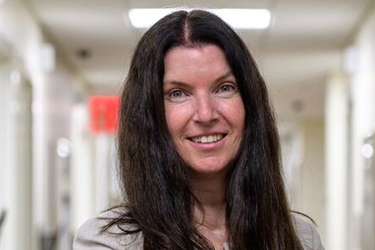We Need More Clinical Trial Awareness … Oh, And CRCs

By Dan Schell, Chief Editor, Clinical Leader

Christina Brennan, MD feels the same way I do about the term “patient centricity” — it’s a buzzword. Every site, CRO, and sponsor claim to be patient-centric, but tangible proof is often elusive.
It’s frustrating, especially to someone like Brennan who has nearly 25 years of experience in this industry, and currently serves as SVP for the clinical research program at Northwell Health, a healthcare system in New York with 21 hospitals and over 900 ambulatory sites. She understands the pain sites are going through considering Northwell has about 2,000 trials ongoing at any time and a workforce of 400 coordinators and over 500 PIs. More importantly, she believes that we can make trials more patient-centric, but it starts with incorporating clinical trials into clinical care. “We [as an industry] treat clinical trials almost like a separate [healthcare] track; patients don't think of them as something they should be talking to their primary physicians about, and many PCPs never mention clinical trials to patients,” she says. “It’s usually when a patient is referred to a specialist that clinical trials are being discussed, but it needs to start earlier.”
Her point about increasing general awareness of trials is one I’ve heard before but is often overshadowed by hot-button issues such as diversity and AI. In my mind, it shouldn’t be. Think about it; increasing general awareness of clinical trials is really a key part of improving diversity in trials. In any discussion of diversity there’s always a mention of working with local community organizations. Community PCPs are the most trusted person to potential trial participants, and yet they are rarely involved with trials. Why? It’s probably due to the added workforce burden that taking on clinical trials creates for these small providers. Hence the common “one-and-done” scenario that we’ve heard about for so long. “We need to reeducate community providers about clinical trials even if they are not associated with a site,” Brennan says.
She adds that EMRs can help increase awareness. If you’re an EPIC user, you can look at your MyChart and see all your medical information. So why isn't something there related to clinical trials? “Again, this goes back to incorporating clinical trials into clinical care.”
Even if we make patients more aware of trials, if they have to go to some academic center to participate, that may be a deterrent. At least give them the option to participate at some level at their local provider’s office.
The phrase “patient choice” was brought up a lot during my interview with Brennan, and she gave an example of an initiative Northwell implemented recently related to this. The company partnered with Press Ganey to conduct surveys of patients who had participated in 25 of their trials across various TAs. Participants were surveyed when they enrolled, midway through the trial, and then at the end of the study. Having access to this data in real time will enable (this is still an early-phase pilot) Northwell to respond quickly, minimizing the chance that a patient could encounter something that would lead them to discontinue in the trial. “Often, it was some simple things, like maybe waiting too long for the radiology portion of their site visit,” Brennan says. “I think having this data helps us better leverage the patient voice and makes us realize we have to do better on patient choice.”
LET'S ALL PROMOTE CLINICAL RESEARCH AS A CAREER
Any discussion about getting community HCPs more involved with clinical trials inevitably leads to talk about the lack of CRCs these days. I said it in my article last year, and I’ll say it again — CRCs have it tough. Constantly mired in resolving never-ending queries and just the overall coordination and training challenges associated with trials, it’s no surprise there’s a lot of turnover in these positions. It’s also no wonder that Brennan says a PI’s success in — and satisfaction with — clinical research can be directly related to their CRC(s). Which makes it all the more strange, she says, that people don’t consider clinical research a career. Again, like clinical trials in general, it comes down to awareness. “For example, clinical research as a career doesn't exist with the U.S. Census Bureau,” Brennan says. “I sit on the ACRP board, and we are trying to address this issue.” People need to be made aware, even at the high school and college levels, that this is a career path.
Is COVID to blame for the current dearth of CRCs in the industry? Maybe. The pandemic did introduce a lot of folks to the work-form-home concept, and many didn’t want to go back to the office. That’s a tough one when you’re in a patient-facing role like a CRC. After all, Zoom calls probably aren’t an option for many site coordinators.
Like Brennan says, a coordinator is never caught up. No amount of AI or natural language processing is going to completely solve that problem, so we need to continue to seek ways to lessen that burden. Creating awareness around clinical research as a career and managing the expectations of those entering the field — including CRCs — will help, but we still have a long way to go — much like we do with patient-centricity (however you define that).
